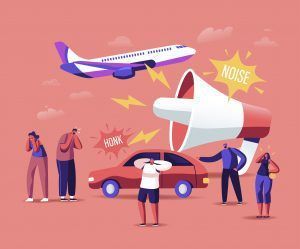Article
Separating Fact from Fiction: 6 Hearing Loss Myths Exposed
Written By: Kathleen Page, NYS Licensed and Board Certified Audiologist
Hearing loss is the third most common health problem among older adults in the U.S., after heart disease and arthritis. In honor of Better Hearing & Speech Month, let’s address a few of the many misconceptions around hearing loss.
Myth #1 Exposed: The most common cause of hearing loss is advancing age.
Fact: While advancing age is a factor, it’s not the most common cause of hearing loss. In fact, only 35% of people with hearing loss are older than age 64. The truth is, exposure to loud noise is the number one cause of hearing loss. Noise-induced hearing loss is permanent, affects all ages, and almost always is preventable!
What to Do: When sounds are louder than 85 decibels, wear hearing protection, turn down the volume, limit exposure time, or walk away. Annual hearing checks are a good practice. Call H.E.A.R.S. Audiology for a complimentary hearing test and information on hearing protection options.
Myth #2 Exposed: Ringing in the ears is a sign that someone is talking about you.
Fact: Ringing in the ears, or tinnitus , is a symptom of hearing loss. Tinnitus can be caused or exacerbated by noise exposure, certain medications or health conditions, excessive caffeine, fatigue and stress.
What to Do: Consult your physician about the health conditions and medications that might be causing your tinnitus. In many instances, hearing aids can provide relief from tinnitus. See an audiologist to determine if hearing loss is present and to discuss treatment options to reduce the negative effects of tinnitus.
Myth #3 Exposed: If I had a hearing loss, my family doctor would have told me.
Fact: Studies reported by the Better Hearing Institute show that only 14% of physicians routinely screen for hearing loss.
What to Do: Ask your physician for a hearing screening during your annual physical exam, or ask for a referral to an audiologist. You are at increased risk for hearing loss and/or tinnitus if you are over 55, work in high noise occupations, have a history of cardiovascular disease, kidney disease, diabetes, or obesity, or have received chemotherapy or other ototoxic medications.
Myth #4 Exposed: Hearing loss does not affect psychological well-being.
Fact: Individuals with untreated hearing loss often are excluded from conversations and experience feelings of disconnect, frustration, loneliness, isolation, and depression. The tinnitus that often accompanies hearing loss can be debilitating, causing loss of focus, anxiety, and distress. Furthermore, studies have shown a connection between untreated hearing loss and cognitive decline, dementia, and Alzheimer’s disease.
What to Do: If you suspect that you or a loved one has hearing loss, schedule an hearing evaluation. If a hearing impairment is identified, hearing aids can make all the difference in improving quality of life, slowing cognitive decline, and engaging the individual in meaningful communications.
Myth #5 Exposed: Wearing h earing aids will make me look “older.”
Fact: It’s not the hearing devices that make one look older; it’s the hearing difficulty itself – needing others to repeat themselves, mishearing what is said, and responding inappropriately – that gives the appearance of advancing age.
What to Do: Schedule a consultation with H.E.A.R.S. Audiology to discuss your options. Considerations will be given to your degree of hearing loss, lifestyle, budget, and cosmetic preferences. Many discreet options are available, with some hearing devices being virtually invisible.
Myth #6 Exposed: Hearing devices aren’t worth the expense.
Fact: According to research, 8 out of 10 people report their quality of life improved significantly with hearing devices. Digital technology in hearing devices advances every year, and many have built-in features that improve communication and enhance the listening experience, such as Bluetooth connectivity, rechargeability, tinnitus solutions, and remote access to hearing care.
What to Do: Consult with an audiologist to learn more about the variety of hearing devices available. Check with your health insurance carrier to find out if you have hearing aid benefits with your plan. Ask your audiologist about discounts or promotions. H.E.A.R.S. Audiology also offers an all-inclusive subscription plan and zero-interest financing.
Sources: Better Hearing Institute; American Academy of Audiology
share this
Related Articles
Related Articles


STAY UP TO DATE
GET PATH'S LATEST
Receive bi-weekly updates from the church, and get a heads up on upcoming events.
Contact Us


